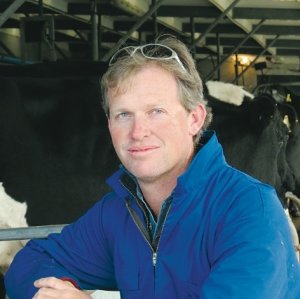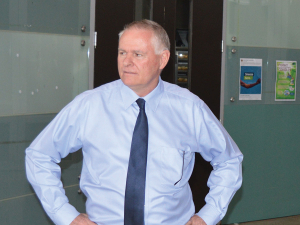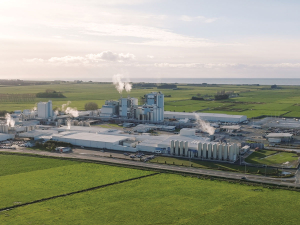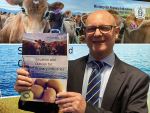This interesting farm has three different soil types: peat, sand and Hautere river soils, the latter stony country. The milking platform is 140ha; another 85ha grows maize, hay and baleage.
Wilson, his wife Cynthia and his parents own 115ha and lease the rest; some is Maori land and some is leased from a commercial grower. They run 300 cows and carry 75 replacement heifers. Cynthia looks after the calves. Until now they have milked through the winter but from next season they will do only seasonal milking.
Wilson wants to increase milk production and says in the last year they have done well. Production is heading for 126,000kgMS this season, well up on last year’s 112,000kgMS. One way he’s doing this is by measuring his pasture and managing his feed better.
“The pasture meter has certainly helped. I know exactly what the growth rates are and it’s not easy because we have sandhills as well as 100ha of peat. The pasture meter has enabled me to improve the quality of the pasture.”
Wilson has also invested in Protrack automatic drafting developed by LIC, running it with LIC’s animal management software “It’s got a touch screen in the milking pit which is hooked up to the desktop PC in the office, and the desktop controls all the drafting.
“The beauty is anyone can draft a cow out. If a cow is lame I just plug it in and it’s drafted out. This system also communicates with LIC Minda software that receives and records all data and events about each animal – calving, health, vaccination, post-calving issues, mating, heats, etc. This enables me to keep good data on every cow in the herd and provides top notch records.”
Wilson believes these systems will help improve conception rates for his cows via the concepts of DairyNZ’s InCalf scheme; the cows were recently body-condition scored using the DairyNZ Body Condition Score assessment; it all contributes to planning for next spring’s seasonal mating. And it allows him to draft remotely – no going to the shed to do this task.
Wilson is now looking at new technology LIC is developing (Ezi Heat) that will use cameras to determine whether cows are on heat – a ‘bolt-on’ to Protrack. The cameras photograph a heat detector on the cows’ tails, comparing these with an image of a clean detector. Any difference between the two results in the cow being drafted. While the technology hasn’t been released, the trials indicate high accuracy and Wilson is interested in buying it. Protrack helps minimise the need for Wilson’s father to help.
Wilson is also doing practical work on-farm. With much of the land in peat, he has been busy enlarging culverts for better winter drainage; floods occur most years. But while the peat may present some problems in winter, it does ensure good grass growth during some dry summer months. He uses a helicopter to spread fertiliser, mainly to reduce damage to pastures, especially peat. It also gives good even coverage on the sand hills.
Wilson takes part in DairyNZ discussion groups and is full of praise for the local DairyNZ consultant, Abby Hull, who ensures all members participate. “She’s like a schoolteacher, making sure we all take part in the conversations.”
Wilson is doing an AgITO diploma in agribusiness management to build his knowledge of farming. He’s finished the national certificate of financial analysis and business planning, is now doing resource management, and is looking at employment law.
Like his father Peter, Wilson is an Otaki boy who attended the popular rural Te Horo Primary School and Otaki College. Tim and Cynthia’s boys John and Peter attend Te Horo school. Wilson, as well as making a reasonable living and providing daily challenges, likes the idea of having his boys around him at work. They play around the shed and frequently help out.
“During the school holidays they wanted to earn some money so they got up early in the morning and sprayed the cows’ teats,” he says.









